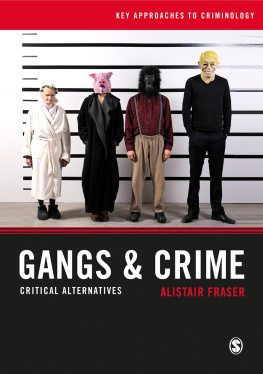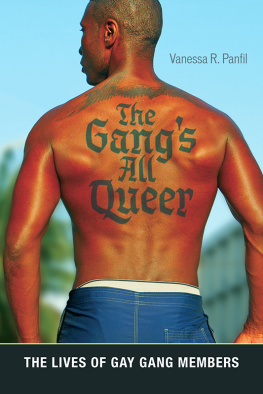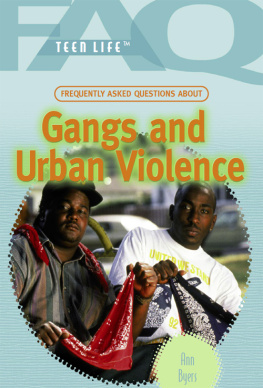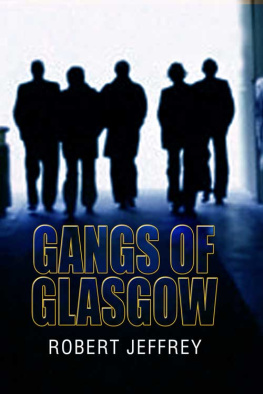David Brotherton - Youth Street Gangs: A critical appraisal (New Directions in Critical Criminology)
Here you can read online David Brotherton - Youth Street Gangs: A critical appraisal (New Directions in Critical Criminology) full text of the book (entire story) in english for free. Download pdf and epub, get meaning, cover and reviews about this ebook. year: 2015, publisher: Routledge, genre: Politics. Description of the work, (preface) as well as reviews are available. Best literature library LitArk.com created for fans of good reading and offers a wide selection of genres:
Romance novel
Science fiction
Adventure
Detective
Science
History
Home and family
Prose
Art
Politics
Computer
Non-fiction
Religion
Business
Children
Humor
Choose a favorite category and find really read worthwhile books. Enjoy immersion in the world of imagination, feel the emotions of the characters or learn something new for yourself, make an fascinating discovery.

- Book:Youth Street Gangs: A critical appraisal (New Directions in Critical Criminology)
- Author:
- Publisher:Routledge
- Genre:
- Year:2015
- Rating:5 / 5
- Favourites:Add to favourites
- Your mark:
Youth Street Gangs: A critical appraisal (New Directions in Critical Criminology): summary, description and annotation
We offer to read an annotation, description, summary or preface (depends on what the author of the book "Youth Street Gangs: A critical appraisal (New Directions in Critical Criminology)" wrote himself). If you haven't found the necessary information about the book — write in the comments, we will try to find it.
Gangs have been heavily pathologized in the last several decades. In comparison to the pioneering Chicago Schools work on gangs in the 1920s we have moved away from a humanistic appraisal of and sensitivity toward the phenomenon and have allowed the gang to become a highly plastic folk devil outside of history. This pathologization of the gang has particularly negative consequences for democracy in an age of punishment, cruelty and coercive social control.
This is the central thesis of David Brothertons new and highly contentious book on street gangs. Drawing on a wealth of highly acclaimed original research, Brotherton explores the socially layered practices of street gangs, including community movements, cultural projects and sites of social resistance. The book also critically reviews gang theory and the geographical trajectories of streets gangs from New York and Puerto Rico to Europe, the Caribbean and South America, as well as state-sponsored reactions and the enabling role of orthodox criminology.
In opposition to the dominant gang discourses, Brotherton proposes the development of a critical studies approach to gangs and concludes by making a plea for researchers to engage the gang reflexively, paying attention to the contradictory agency of the gang and what gang members actually tell us. The book is essential reading for academics and students involved in the study of juvenile delinquency, youth studies, deviance, gang studies and cultural criminology.
David Brotherton: author's other books
Who wrote Youth Street Gangs: A critical appraisal (New Directions in Critical Criminology)? Find out the surname, the name of the author of the book and a list of all author's works by series.







